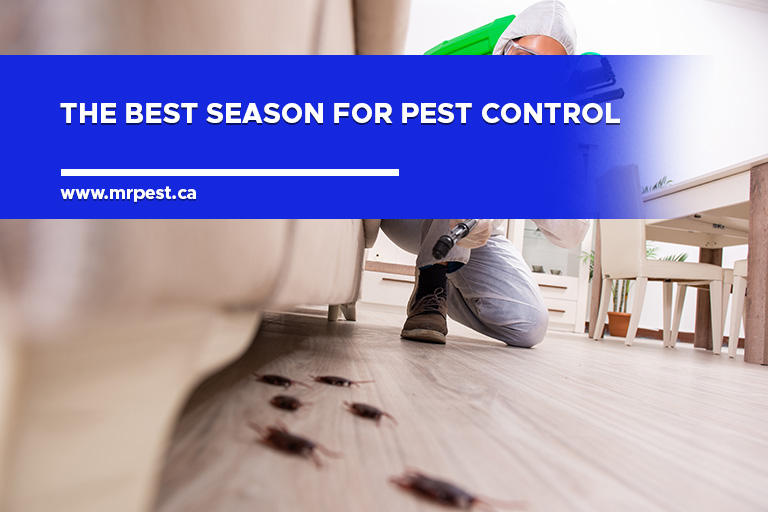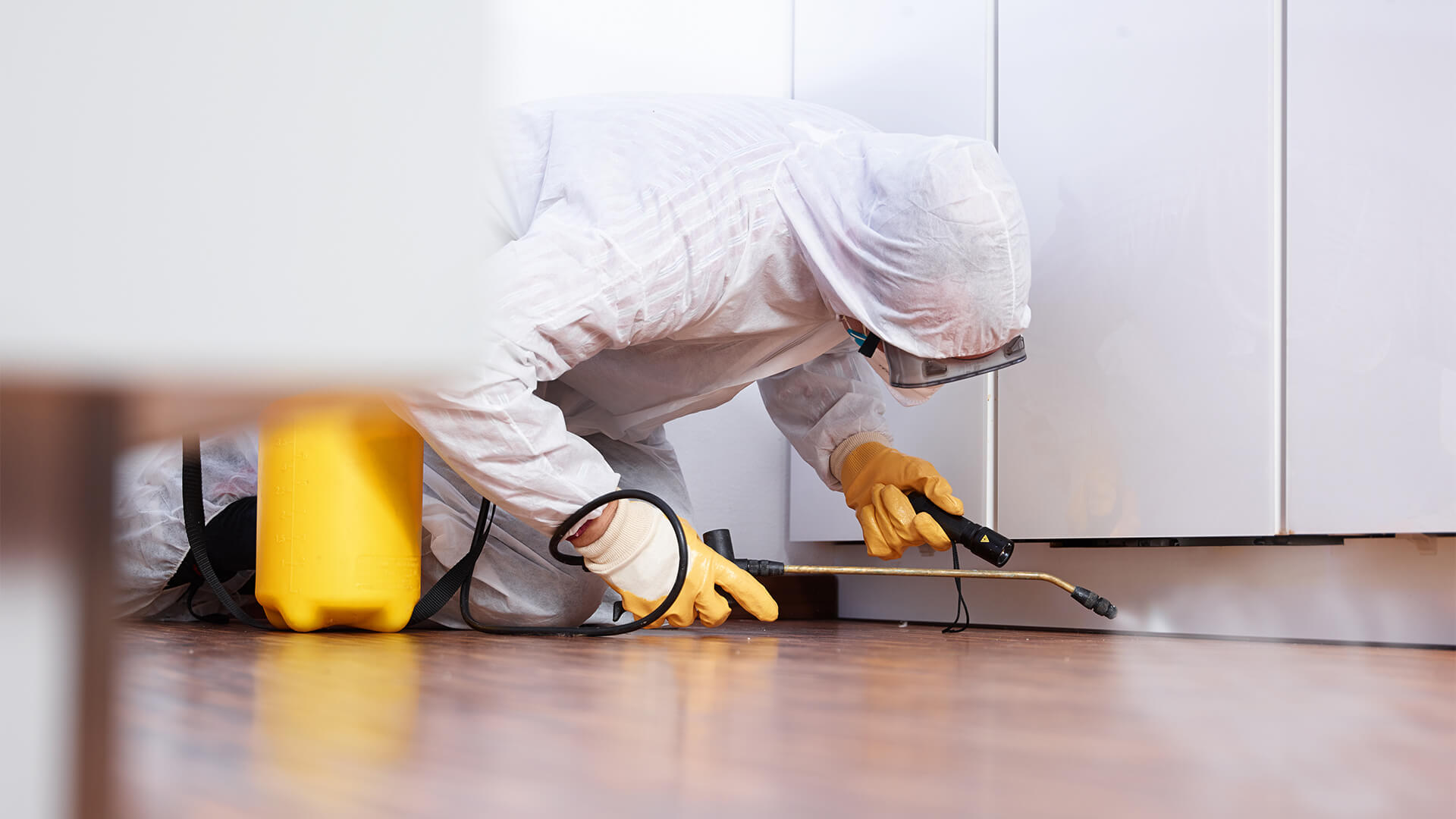Safe and Dependable Parasite Control for Lasting Protection
Reliable bug monitoring needs a complex strategy that balances environmental honesty with the demand for reliable parasite suppression. The nuances of these techniques might not be right away clear, prompting a better assessment of the techniques that can lead to lasting bug control outcomes.
Comprehending Insect Control Approaches
Parasite control includes a selection of methods targeted at managing and eradicating undesirable bugs and rodents that can threaten both health and wellness and residential or commercial property. Comprehending these approaches is critical for effective pest administration.
The key categories of insect control approaches include mechanical, organic, and chemical strategies. Mechanical approaches entail physical barriers and catches to stop bug access and capture unwanted types. Using screens on windows or using sticky traps can substantially reduce insect populations without presenting dangerous compounds - exterminator coquitlam.

Chemical pest control is usually the most recognized approach, using chemicals to get rid of insects. These chemicals can be reliable but should be made use of with caution to avoid negative results on non-target types and the atmosphere.
Advantages of Eco-Friendly Solutions
Just how can eco-friendly remedies transform pest control practices? The fostering of environmentally friendly pest control methods supplies various advantages, significantly enhancing the efficiency and safety of bug monitoring (exterminator coquitlam). First of all, these options make use of all-natural active ingredients, reducing the reliance on dangerous chemicals that can position risks to human wellness and the atmosphere. This change not just secures households and animals however likewise decreases the capacity for dirt and water contamination.
Another benefit is the favorable influence on neighborhood biodiversity. Environment-friendly solutions are designed to target particular parasites while protecting useful bugs and wild animals, promoting a balanced ecosystem. This technique straightens with the growing consumer need for sustainable methods, enhancing the credibility of bug control suppliers.
Integrated Insect Administration Techniques
The implementation of environment-friendly services naturally leads to the adoption of Integrated Bug Administration (IPM) methods, which better boost insect control efficacy. IPM is a holistic strategy that incorporates several tactics to manage pest populations while reducing environmental effect. This method stresses making use of organic, cultural, mechanical, and chemical controls, guaranteeing a sustainable and balanced technique of parasite monitoring.
One basic aspect of IPM is the comprehensive assessment of pest task and ecological problems. By monitoring pest populaces and recognizing their life cycles, experts can carry out targeted interventions that interfere with the parasite's environment or lifecycle, decreasing reliance on chemical pesticides. In addition, social methods such as plant rotation and habitat manipulation can considerably lessen bug establishment and recreation.
Another essential component is making use of organic control agents, such as beneficial pests or microbes, which can normally reduce bug populations. When chemical applications are needed, IPM focuses on the usage of low-risk chemicals and uses them uniquely, lessening exposure to non-target microorganisms and people.
Including IPM strategies not only enhances insect control performance but also promotes a much safer ecological community, straightening with the expanding need for sustainable methods in insect management.
Safe Practices for Homeowners
Understanding the value of secure methods in bug control can equip homeowners to efficiently handle pest problems while securing their health and the setting. Applying preventive steps and non-toxic approaches is crucial in minimizing direct exposure to damaging chemicals.
Homeowners ought to initially analyze their atmosphere for conditions that draw in parasites, such as standing water, mess, and food waste. On a regular basis cleansing and sealing entry points can deter bugs from getting into the home. Using natural deterrents, such as essential oils or diatomaceous planet, can offer efficient choices to chemical pesticides.
When chemical therapies are needed, home owners should go with products that are particularly classified as risk-free for domestic use. It is crucial to adhere to application standards diligently to avoid overexposure. Using targeted therapies in areas where parasites are identified, rather than blanket splashing, can substantially minimize chemical usage.
Last but not least, keeping open interaction with insect control professionals is crucial. Homeowners must make inquiries about the safety of items used and request green choices whenever possible. By taking on these risk-free practices, house owners can develop a much healthier you can try this out living environment while successfully handling insect concerns.

Tips for Long-Term Defense
Establishing a bug management approach that emphasizes long-lasting defense can substantially enhance the efficiency of the secure practices formerly discussed. To accomplish this, homeowners need to implement routine assessments of their building, concentrating on hidden locations such as attics, cellars, and crawl spaces. Early detection of insect activity is essential in preventing problems from holding.
These techniques minimize attractants that attract parasites right into the home. Securing entry points, such as cracks around doors and home windows, can effectively obstruct prospective parasite access.
Landscape design must likewise be taken into consideration; maintaining plants cut and keeping a distance between vegetation and the home decreases concealing spots for parasites. Using all-natural deterrents, such as essential oils or diatomaceous planet, can even more discourage infestations without resorting to rough chemicals.
Lastly, working together with an expert pest control solution for periodic analyses can give an additional layer of security. These experts can provide customized recommendations and progressed therapies, guaranteeing that your home stays safeguarded versus insects in the long-term.
Conclusion
In final thought, risk-free and reliable insect control requires a complex approach that stresses eco-friendly techniques and incorporated parasite management. By implementing natural deterrents, carrying out normal examinations, and maintaining appropriate sanitation, homeowner can dramatically reduce Click This Link insect populaces while securing valuable bugs and the setting. Partnership with specialist pest control services enhances the performance of these approaches, making sure customized services that offer enduring security and peace of mind against future invasions.
Effective insect management requires a multifaceted strategy that stabilizes ecological integrity with the demand for effective pest reductions. The adoption of environmentally friendly pest control approaches uses countless advantages, considerably improving the efficiency and safety of insect administration.The application of environment-friendly remedies naturally leads to the fostering of Integrated Parasite Administration (IPM) strategies, which even more enhance pest control effectiveness. exterminator coquitlam. By keeping track of pest populaces and determining their life cycles, experts can execute targeted interventions that interfere with the bug's habitat or lifecycle, decreasing reliance on chemical pesticides.In verdict, risk-free and trusted pest control calls for a complex technique that emphasizes you could try this out eco-friendly techniques and integrated pest monitoring